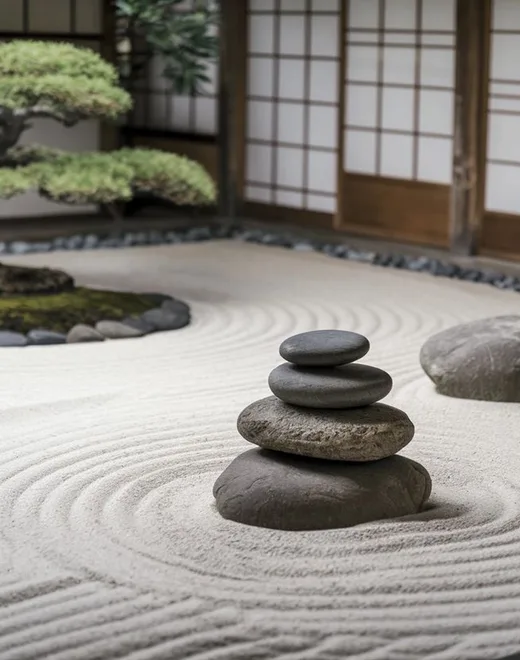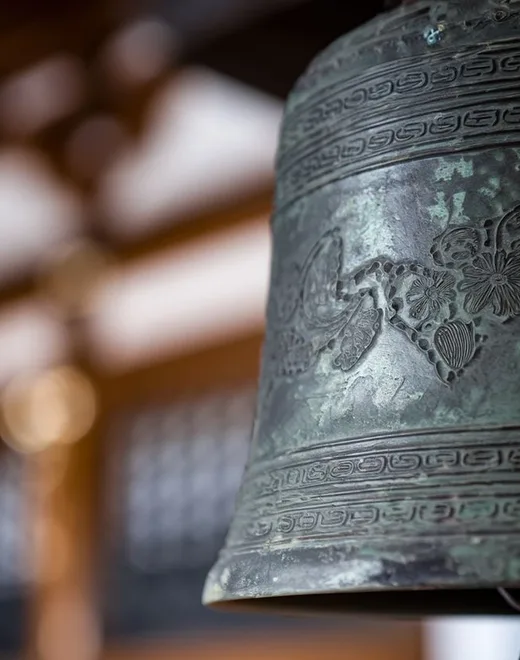Secular Buddhism Explained: A Beginner's Guide to Modern Mindfulness
Dec 30, 2024 • 5 min read
Remember the last time you felt overwhelmed by life's constant demands? You're not alone. Many of us are searching for ways to find peace. Adopting entirely new religious beliefs is a bit too burdensome for many of us.
That's where secular Buddhism comes in – think of it as taking the practical wisdom from Buddhist traditions and applying it to modern life, minus the religious elements.
What Makes Secular Buddhism Different?
Secular Buddhism emerged as a fresh interpretation of Buddhist teachings for our contemporary world. Stephen Batchelor, author of "Buddhism Without Beliefs," describes it as "taking the Buddha's teachings out of their traditional religious context and applying them to the psychological, social, and philosophical challenges of our time".
Unlike traditional Buddhism, secular Buddhism doesn't ask you to believe in reincarnation, karma as cosmic justice, or supernatural elements. Instead, it focuses on the practical tools that Buddhism offers for reducing suffering and living more mindfully. It's like having access to a 2,500-year-old wisdom tradition that's been updated for our modern lives.
The Four Noble Truths: A Modern Take
The core of secular Buddhism still centers around the Four Noble Truths, but with a contemporary interpretation.
- The reality of suffering: Rather than viewing suffering as something to escape, secular Buddhism sees it as a natural part of being human. It's not about being pessimistic; it's about being realistic.
- The origin of suffering: Modern neuroscience supports the Buddhist insight that our tendency to cling to pleasant experiences and resist unpleasant ones creates psychological tension. Dr. Rick Hanson's research shows how our brains are "velcro for negative experiences but teflon for positive ones" – a finding that echoes Buddhist teachings about attachment.
- The possibility of reducing suffering: This isn't about achieving some mystical state but rather developing a healthier relationship with our experiences.
- The path to reducing suffering: Here's where secular Buddhism really shines, offering practical methods like meditation and mindfulness that have been validated by scientific research.
Working with Difficult Emotions
When you're feeling anxious, angry, or sad, your first instinct might be to push these emotions away or try to fix them immediately. Secular Buddhism offers a different approach. Instead of seeing difficult emotions as problems to solve, we can learn to observe them with curiosity and kindness. This doesn't mean wallowing in negative feelings - it means developing a more skillful way of relating to them.
This approach becomes particularly powerful when you understand that emotions aren't permanent states, even though they often feel that way. They're more like weather patterns moving through your awareness. Just as a storm eventually passes, so too will intense emotions if we don't fuel them with resistance or reactivity. The key is learning to stay present with whatever you're feeling without getting caught in stories about what it means or how long it will last.
When you practice this way of working with emotions, you might notice something surprising: the simple act of allowing an emotion to be present, without trying to change it, often leads to natural transformation. It's like finally listening to someone who's been trying to get your attention - once they feel heard, they often calm down on their own.
The Role of Meditation in Daily Life
Meditation in secular Buddhism isn't about achieving blissful states or emptying your mind. Instead, it's a practical tool for getting to know how your mind works. When you sit down to meditate, you're creating a laboratory for observing your thought patterns, emotional reactions, and habitual tendencies. This understanding naturally leads to more conscious choices in daily life.
Many people think they're "bad at meditation" because their mind keeps wandering. But a wandering mind isn't a problem - noticing that your mind has wandered is actually the heart of the practice. Each time you notice you're lost in thought and gently return your attention to your breath or chosen focus, you're building the muscle of awareness.
The real benefits of meditation often show up not during formal practice but in daily life. You might notice you're able to catch yourself before reacting angrily to a coworker's comment, or that you can stay more focused during important conversations. These small moments of awareness add up to significant changes in how you navigate life's challenges. The key is consistency rather than duration - fifteen minutes of daily practice will serve you better than occasional long sessions.
The Role of Mindfulness in Secular Buddhism
Mindfulness is perhaps the most widely adopted aspect of secular Buddhism. But secular Buddhism approaches mindfulness not just as a stress-reduction technique, but as a way to see reality more clearly.
Think of mindfulness as your mind's built-in laboratory for understanding experience. When you're mindful, you're not trying to achieve anything special – you're simply paying attention to what's already happening. This might sound simple, but it's revolutionary in a world that's constantly telling us to be somewhere else, do something else, or be someone else.
One of the most interesting aspects of secular Buddhism is how it approaches ethics. Instead of following rules because they're divinely ordained, secular Buddhism suggests we be ethical because it leads to less suffering for ourselves and others.
Finding Your Own Path
Perhaps the most appealing aspect of secular Buddhism is its invitation to question and explore rather than simply believe. As the Buddha himself reportedly said, "Don't go by reports, by legends, by traditions, by scripture... Know for yourselves." This empirical approach resonates strongly with our modern scientific mindset.
You don't need to call yourself a Buddhist to benefit from these teachings. Whether you're interested in reducing stress, understanding your mind better, or living more ethically, secular Buddhism offers practical tools that have stood the test of time and are now being validated by science.
Remember, the goal isn't to become some idealized version of yourself or to achieve permanent happiness. Instead, it's about seeing things more clearly and responding to life's challenges with greater wisdom and compassion. In our fast-paced, often chaotic world, this ancient-yet-modern approach offers a promising path to greater well-being and understanding.
The beauty of secular Buddhism lies in its simplicity and practicality. It strips away the cultural and religious trappings while preserving the essential insights and practices that have helped people for millennia. Whether you're dealing with stress, seeking meaning, or simply curious about how to live more mindfully, secular Buddhism offers a practical, evidence-based approach that fits naturally into modern life.
Take what works for you, leave what doesn't, and most importantly, test these ideas in the laboratory of your own experience. After all, that's exactly what the Buddha encouraged us to do.
DISCLAIMER: All articles, information, and other content on our website is for informational purposes only and is not a substitute for medical advice, diagnosis, or treatment. If you are experiencing mental health challenges or have concerns about your mental or physical health, please consult a qualified healthcare professional. Learn more →


